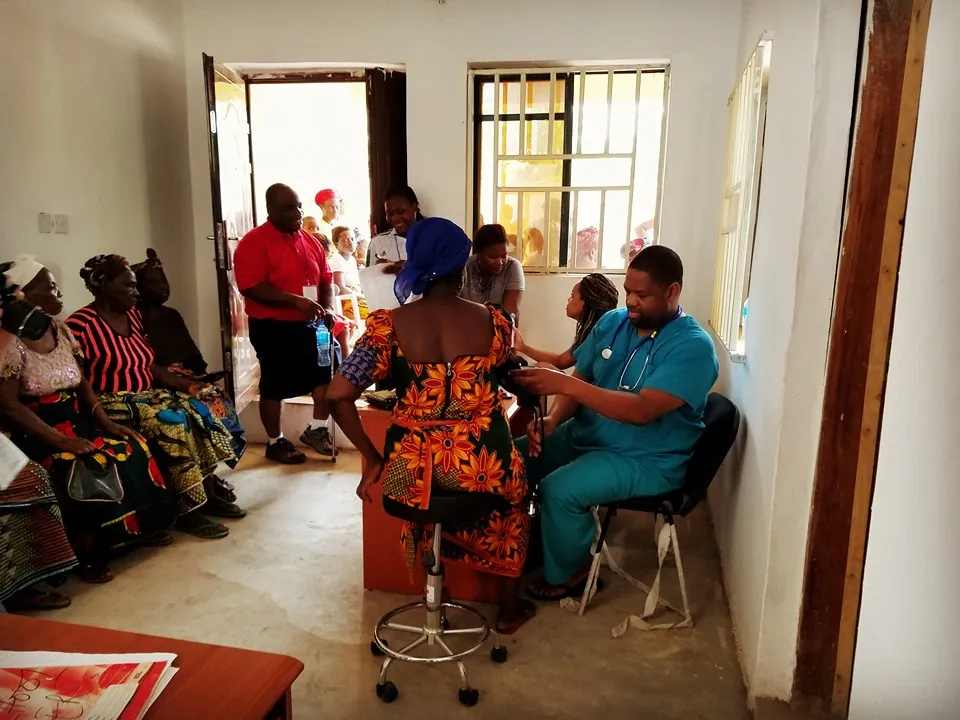


Outcomes research
Addressing Global Disparities in Gynecological Cancer
Innovative treatments for gynecological cancers have rapidly emerged in the last two decades. These innovations include new surgical approaches, targeted therapies and personalized medicine.
However, these innovative advancements do not benefit all women. They are often unavailable in low-and middle-income countries (LMICs) where lack of resources create barriers to basic cancer prevention care.
As a result, women in LMICs suffer devastating losses to gynecological cancers.
Discrimination, stigma and global policymakers’ chronic lack of attention to women’s cancers are largely to blame for these unacceptable losses, according to a 2024 essay published in The Lancet Oncology.
The essay, authored by a team of international gynecological oncology leaders, including Houston Methodist’s Pedro T. Ramirez, MD, FACOG, calls for a global campaign emphasizing the value of women’s lives.
The campaign urges immediate action against “the ever-increasing burden of disability and premature mortality from women’s cancers, as well as the substantial additional consequences for their families, communities, and economies.”

The Lancet Oncology essay also supports the efforts of the ValueHer Initiative of the U-Vol Foundation, a nonprofit that aims to address unmet health care and wellness needs of underserved communities. This Initiative specifically focuses on health disparities in Nigeria, where there is a shortage of trained health care workers and community-based women’s health and maternity facilities.
As Chair of the Houston Methodist Department of Obstetrics and Gynecology, Ramirez further emphasized the importance of investing in women’s cancer prevention and care.
“Women are often at the core of the family making important decisions about education, finances and the future growth of their family unit,” he explained. “Women are also major contributors to academics, technology, medicine and other critical areas that are key to the continued growth of society. So, anything that impacts women’s health has a strong downstream effect on everyone.”

Pedro T. Ramirez, MD, FACOG
The essay authors suggest that investing more in basic cancer prevention care with a focus on accessibility is key to alleviating disparities in LMICs.
Yet, barriers to such care, including basic surgical procedures, cervical screening, and human papillomavirus virus (HPV) vaccination, remain persistent.
For example, cervical cancer, which can be largely prevented by the HPV vaccine, is the fourth most common cancer in women globally. In 2022, the disease caused more than 300,000 deaths, 94% of which occurred in LMICs.
HPV vaccination remains low in LMICs for numerous reasons, including a lack of supplies, resources for distribution and an education program that addresses vaccine misinformation and stigma. An increased investment in preventive care with a focus on accessibility could help alleviate these barriers to HPV vaccination and improve cervical cancer rates.
In addition to more effective investment in cancer prevention care, essay authors call for an increase in cancer research funding allocated to LMICs.
These strategies to alleviate global gynecological cancer disparities require strategic collaboration between HICs and LMICs, thus the call for a global investment in women’s health.
Stigma has a broad impact on women’s gynecological cancers beyond vaccine uptake. In the case of cervical cancer, the disease is often associated with sexual promiscuity, even though HPV is the most common sexually transmitted infection. Disclosing and discussing any gynecological cancer diagnosis may be difficult for women, as they may fear judgment from doctors, sexual partners or family. Such fear can cause women to harbor shame and procrastinate seeking care, contributing to poorer health outcomes. These trends are seen in both high-income countries and LMICs. Public education programs that destigmatize gynecological cancers are crucial to fostering health care autonomy among women.
The essay authors also highlight inequities in how research funding is prioritized for certain cancers, particularly in high-income countries where funding is more accessible. They note that female genital tract cancers continuously receive less research funding than other cancers, including male genital tract cancers. While cancers that impact a higher percentage of the population are going to receive more funding, “there are certainly disparities in how this funding is allocated,” said Pedro T. Ramirez, MD, FACOG, Chair, Department of Obstetrics and Gynecology.
According to the essay authors, these strategies to alleviate cancer disparities are relatively low-cost. At the very least, money spent on low-quality treatment should be reoriented toward higher-return investments, such as cancer prevention care.
“Women often place the needs of others before their own,” Ramirez added. “It’s time we prioritize half our world’s population and address these gynecological cancer disparities that impact all of us.”
Callie Rainosek Wren, MS
August 2024








